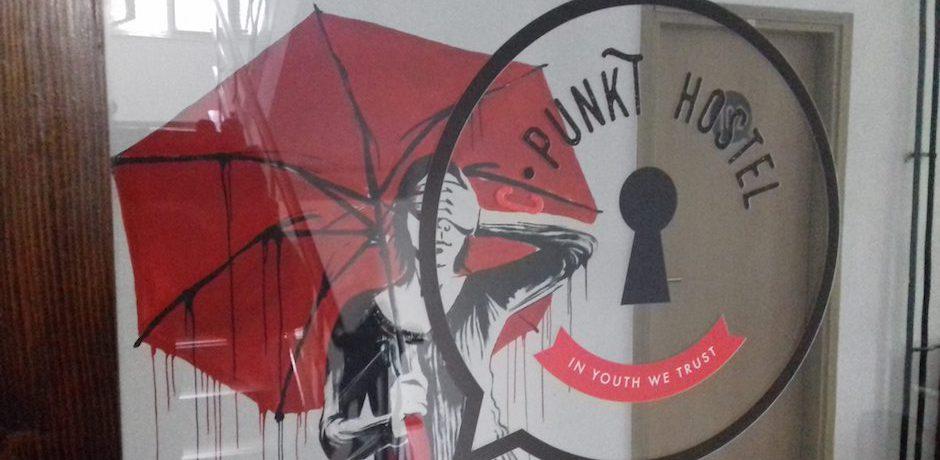Reflections on Ljublijana's FEST storytelling conference
‘We live in a time when we believe stories more than facts. It therefore becomes more and more important which stories we tell.’ Ana Duša, Storytelling Variety NGO, FEST Ljublijana co-organiser 2018
The FEST meeting, like a lot of regular international conferences, is hosted in a different place each year. These annual events give attendees the chance to find out more about the local contexts colleagues work in, as they network and catch up with important themes unfolding in the field. As an embodied form of intangible heritage and cultural exchange, storytelling is a way of sharing important and meaningful narratives that engenders a felt understanding of place and people. This gives FEST attendees opportunities to learn from quite differently immersive cultural experience than the usual explanatory pamphlets, short tourist excursions, or 15 minute presentations. This is only the second FEST conference I’ve attended. In Skellefteå 2014 I gained insight into diverse ways of life in the far North of Sweden. Lectures on the use of Sami mythology in anti-mining activism, were set alongside personal stories of re-claiming the skill of Joiking through exploration of archive recordings. Tours of the local Church Town were infused with tales of ghosts and Västerbotten cheese making. I learned about the importance of this previously isolated, rural landscape and its people in Sweden’s literary tradition. The organisers of FEST in Skellefteå modelled partnership working between regional council, museum and theatre that showed how re-claiming the stories of these everyday lives, and performing them with the attention and love usually offered to an epic, can help re-story a region in exciting new ways for its inhabitants and its visitors. This year’s FEST was held in Ljubijana, a friendly sized city surrounded by forest with alpine peaks in the distance – some still with snow on the top. The Balkans is a region where many languages and cultures meet, with a long history of invasion and conflict, leading to both a distinct and multiple identity. In Ljublijana, architectural influences of the Habsburg hemisphere and Italian Renaissance mingle with Art Deco splendour and communist residential blocks. Walls covered in graffiti circle lively markets selling food produce and artisan crafts. Late night parties full of young people run in semi ruined industrial buildings across the city. Within this setting, the FEST meeting was a three day offer of presentations, performances, discussions and lively exchange with an exploratory theme of the cross roads of storytelling with other art forms. The overall event was infused with welcome opportunities to learn more about the complex histories of the region and its storytelling cultures, and was framed by the questions ‘Where do we meet? Where do we differ? What is our common ground, what are our common responsibilities as storytellers.’ Important questions in these turbulent times of changing national affilliations, and the strengthening of physical and metaphorical borders, with all the implications that brings. The meeting opened with Boštjan Narat’s thought provoking lecture proposing tradition as a ‘partner in dialogue’ rather than a source material. He Interrogated the way in which ‘dead’ traditional cultural objects and performances are brought into the service of patriotism as ‘kitsch’. His band Katalena being an example of how tradition can be troubled into critical, political dialogue with contemporary performance forms through the writing and performance of new types of folk music. A wonderful hour and half with anthropologist Svetlana Slapšak explored gendered histories of storytelling in the Balkans. She generously shared her extensive knowledge of the ritualised performances of the blind women storytellers essential to village life; and revealing the ‘prevailing patriarchal/national censorship of women’s role’ in accounts of storytelling in the region. An alternative feminist tour of Ljublijana with local performance makers and academics ran alongside workshops on ‘Multiperspectivity and responsible storytelling’, the ‘New Trad’ as a form of social inclusion, digital storytelling, story swops and discussions on starting points for a storytelling curriculum in formal education settings. A highlight for me was a new performance commissioned by FEST for the meeting – ‘I, Anarchist’ by Damir Avdić and Erik Valenčič. Rhythmic electric guitar loops mixed with two very different but complementary styles of telling. Erik Valenčič gently shared a deftly structured, unfolding narrative of the chaotic, hedonistic and harrowing experiences of a war correspondent in Africa. These were staged in parallel with Damir Avdić’s moving account of the inhumanity of capitalism, told as a series of funny and deeply resonant moments of cultural and political misunderstanding as experienced by a Balkan worker in American service industries. I was unsure how much of the telling was autobiographical, but whether ‘I, Anarchist’ was based in fact, and how much was elaborated or mythologised from life experience, was immaterial. The ‘truth’ of the work was in the recognition of aspects of my own life experience and politics in this performance, and in that recognition, larger questions and feelings were summoned about the relationships between nationhood, state and personal agency, and the urgent need for us to be continually engaged in forging a sense of common humanity across difference. The ethics of trying to make people believe stories over facts is questionable, demonstrated by the overwhelming onslaught of ‘fake’ news and propaganda that comes from all corners in social feeds and media outputs. In opposition to these attempts at persuasion for profit, arts endeavours have the potential to develop cultural narratives that affect people’s thinking by shifting their awareness and consciousness – not neccessarily through counter polemic, but through metaphor, allegory and affect. To recognise oneself in the stories of others, is a powerful connector. My experience in Ljublijana was an energising and hopeful glimpse into the concerns, and new kinds of practices of contemporary storytelling in the region as they meet the weight of tradition. I left with both hope and questions for my own practice, a dynamic potential for future idea exchange and collaboration across all kinds of borders. Paula Crutchlow, Adverse Camber Artistic Advisor
